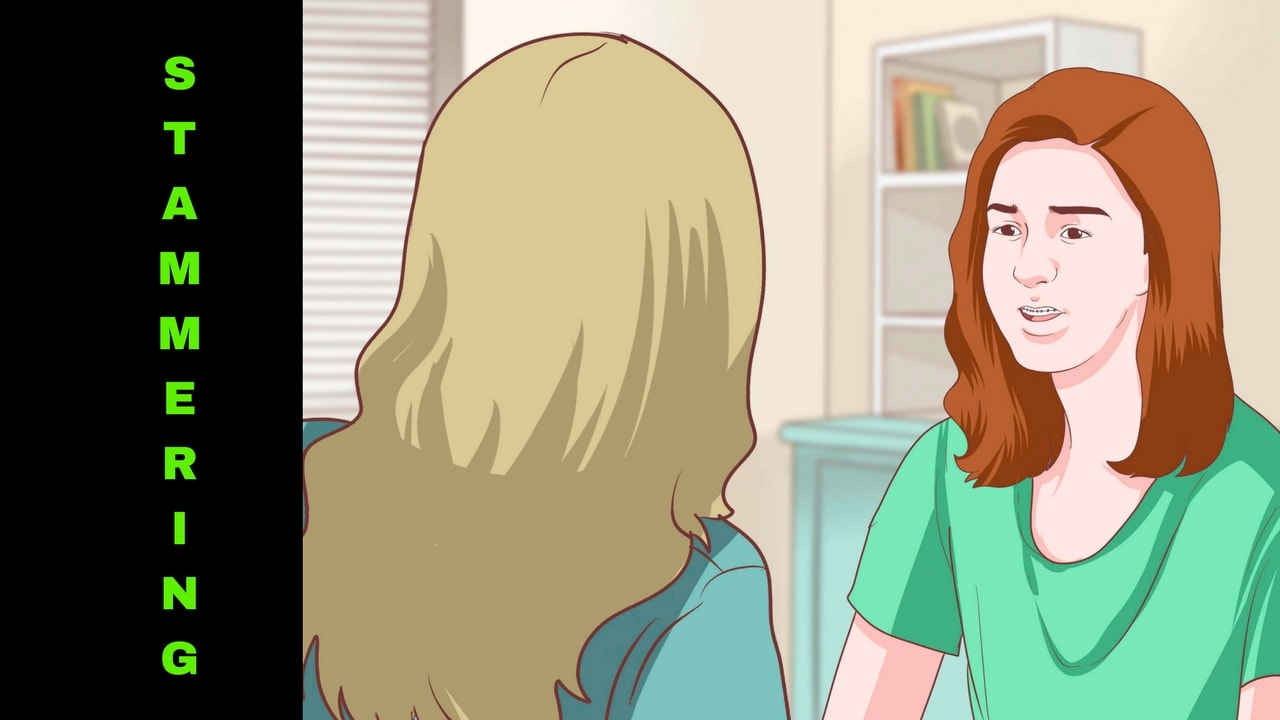
Understanding the various Causes of Stammering
19-09-2017 | Posted By: Chhavi | 3083 View(s)
Stuttering is a Speech Disorder and is also known as Stammering. It is a speech problem in which the person repeats or prolongs words and syllables, skip words or sounds, halt while speaking and have an uneven rate of speech. There are many causes of Stuttering. Most people with this Speech disorder find that they face more problems while talking when they are in stress. Also, when they have to give a public speech or a presentation, it makes them nervous, and they become self-conscious and are not able to speak in a flow.
Stammering is one of the common health problems which develops at an early stage of a child. According to the National Institute of Deafness and Other Communication Disorders (NIDCD), Stuttering affects about 5% of children aged 2 to 5. Studies also reveal that most children stop stuttering when they grow. However, less than 1% of the children continue to stutter as adults. Also, if a child develops this Speech Disorder after the age of 8, there are high chances that stuttering will continue into adulthood.
Causes of Stammering
The specific causes of Stuttering are not yet known. However, Doctors believe that there are certain factors which can trigger/ cause Stuttering such as:
1. Neurogenic Causes
A person may develop a Stuttering problem if the signals between the brain, speech nerves and muscles are not functioning properly. When the brain is unable to send or receive messages in a normal way, stuttering occurs. This dysfunctioning of the speech nerves and the brain can affect children. Also, a stroke or brain injury can cause Stuttering in adults.
2. Psychological Causes
It is believed that one of the leading causes of Stuttering is psychological problems. Doctors do not know how much this fact is true. However, people who stutter find that stress and anxiety make their speech problem worse.
Doctors believe that the psychological factors such as stress may make stammering worse for those who stammer, but they are not underlying factors which cause stuttering.
Low self-esteem, nervousness, embarrassment and stress do not cause stuttering per se. However, stigma is attached to this Speech Disorder and thus people who stutter face a lot of discrimination, embarrassment and humiliation which can sometimes make the symptoms worse. These two factors are the major causes of Stuttering.
Symptoms of Stammering
Those who stutter or stammer often repeat words. Also, they find it hard to start certain words. Some may become nervous when they start speaking, may blink rapidly and their lips may tremble as they communicate verbally.
Studies suggest that some people who stutter become so tense and out-of-breath when they talk that their speech gets completely ‘blocked’. It means that their mouths are in the right position to say the word, but no sound comes out virtually and this last several seconds.
Also, many times the word they want to utter is altered, or they use interjections so that they can delay the initiation of the word. Examples of interjections can be “um, “Well”, “Like”, etc.
Also, many times the word they want to utter is altered, or they use interjections so that they can delay the initiation of the word. Examples of interjections can be “um, “Well”, “Like”, etc.
Common Signs and Symptoms of Stammering :
• Repeat words, sound or syllable
• Face problems when starting a word, phrase or a sentence
• Hesitate before uttering certain words
• Trembling Lips
• Out-of-breath while Talking
• Interjections of words into sentences like “umm”, “like”
• Feeling nervous and blink rapidly while Speaking
• Feeling frustrated when asked to Speak
• Pause or hesitate before Speaking
• Certain speech sounds may be Prolonged
Diagnosis of Stammering
A proper and comprehensive diagnosis of this disorder can be made by a well-qualified Speech-Language Pathologist (SLP). The Speech Pathologist may diagnose stuttering by making the child read aloud. The pathologist may record or film the child talking to check the speech patterns. Also, Pathologists do a physical examination and other tests to check if any health problem is affecting the child’s speech development.
The stuttering problem in adulthood is often linked to a health issue, injury or an emotional trauma. To diagnose the problem, the Speech Pathologist will do a physical examination, ask certain questions and watch and listen to the patient’s speech to check the patient’s speech patterns.
Treatment for Stammering
Some of the Effective Treatment for Stuttering includes:
1.Fluency Shaping Therapy
This is a form of Speech therapy in which the patient is taught to talk smoothly, at a slow speed, using short phrases and sentences and stretching vowels and consonants. With regular practice, the patient gradually starts uttering smooth speech with longer sentences and phrases, and at a higher speed.

2.Breathing control
One of the effective ways to stop stuttering is Breathing Exercises. The patients are taught to breathe deeply before they start to speak. Stuttering usually occurs because people breathe using their chest muscles which tighten the laryngeal muscles. Thus, the patients are also taught to focus on their abdomen when they speak. These breathing techniques help a person avoid stammering.
Some Tips to Stop Stammering:
1. Speak slowly and use short sentences.
2. Breathe in and out while speaking and focus on your abdomen when you Breathe.
3. Take a pause when you are about to Stutter
4. Speak in front of the Mirror
5. Build confidence, do not hesitate in speaking in front of an audience- The more you speak, the
more you will gain confidence.
6. Avoid stress
7. Practice breathing Exercises
8. Consult a Speech Therapist
Stammering is a common speech disorder which can be easily treated if early intervention is done. It is often seen that people who stutter have low self-esteem and are scared to make public interactions. Therefore, parents must support their child if he or she has speech problems and should not avoid this issue as later; this speech disorder may also make an individual depressed. Always remember, only you can help yourself. Do visit a Speech Therapy Clinic if you think you have a stuttering problem.


